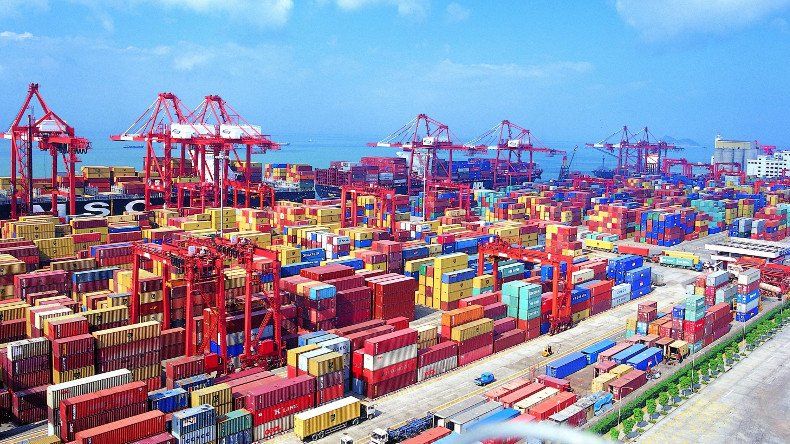
Trade policies can make the global supply chain climate-change resilient
From the acceleration in rising sea levels to water shortages, climate change can bring disruption to the global supply chain far beyond what has been experienced over the past 18 months
Eliminating tariffs and non-tariff barriers that limit trade in ‘green’ goods, harmonising environmental standards of goods and services, along with removing market-distorting subsidies on energy and agriculture sectors, all have the potential to restructure global supply chains to be better prepared for climate change challenges

SHIFTING products manufactured in one corner of the globe to consumers in another is at the core of container shipping.
However, the fluidity in moving final products, as well as raw materials and components for assembly across multiple countries’ manufacturing networks, has been put under increasing pressure over the past 18 months, revealing the vulnerability of the mechanisms supporting the global supply chain.
The present crisis is putting a spotlight on the limitations of the global supply chain: How distant can production be from the final consumers?
How many (few) container lines are responsible for providing the capacity necessary to transport these goods? How is the limited capacity available managed?
As with any crisis, not all actors are suffering the pain. The good news is that the advantages and disadvantages that the various players of the global supply chain are experiencing can be monitored, assessed and fixed.
However, there are also threats to the global supply chain that could bring permanent change that affects not only companies directly involved in transportation but those uninvolved in carrying goods. From the acceleration in rising sea levels to water shortages, far more disruption to the global supply chain can occur from climate change.
What makes these threats more serious is that they touch the most important part of the supply chain; the product.
The spectrum of goods that can be affected ranges from agricultural products, becoming increasingly difficult to grow as temperatures rise , to non-agricultural products such as semiconductor equipment.
According to the Mckinsey Global Institute , semiconductor manufacturing hubs in the Western Pacific are expected to experience severe disruption from extreme hurricanes two to three times as often by 2040 compared with today.
The increase in economic activity, fuelled by the expansion in global trade over recent decades, has generally translated into a higher level of greenhouse gas emissions.
However, trade can also promote global improvements in energy efficiency, in turn reducing greenhouse gas emissions.
This can be achieved, for example, by facilitating access to environmentally friendly technologies; by eliminating tariffs and non-tariff barriers that limit trade in ‘green’ goods; harmonising environmental standards of goods and services; and removing market-distorting subsidies on energy and agriculture sectors, among others.
An encouraging example of how trade policy can be used to support climate and environmental objectives is offered by the negotiations of the Agreement on Climate Change, Trade and Sustainability.
The agreement, which was launched in September 2019 by Costa Rica, Fiji, Iceland, New Zealand and Norway, aims to generate momentum toward developing wider, globally agreed, solutions to environmental challenges.
The five signatories intend to use trade rules to tackle environmental degradation by removing barriers on environmental products and services.
Specifically, as reported on the New Zealand government website, it aims to:
• Remove tariffs on environmental goods and make new commitments on environmental services
• Establish concrete commitments to eliminate fossil fuel subsidies
• Develop voluntary guidelines for eco-labelling programmes and mechanisms .
The European Union is also working on equivalent initiatives aiming to put sustainability at the heart of trade policy.
The UK will host the 26th UN Climate Change Conference of the Parties ( COP26 ) in Glasgow later this year, aiming to accelerate action towards the goals of the Paris Agreement and the UN Framework Convention on Climate Change.
It will be interesting to observe if and how COP26 will tie trade policies to the much-needed actions on climate change.
The closure of international borders during the first weeks of the pandemic alarmed many of a possible global food crisis. Their reopening proved how crucial international co-operation is to avoid a severe event becoming a worse tragedy.
Global supply chains structured to be better prepared for the challenges coming from climate change can make us all, bigger and smaller economies, ready for the next crisis.
